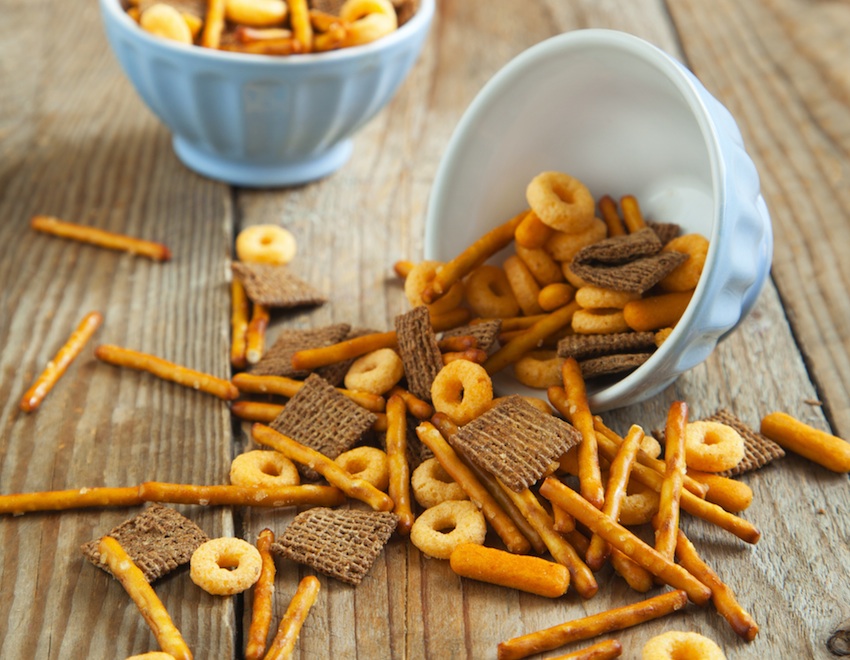You Can Be Addicted To Carbs, Study Says

Snack mix image via Shutterstock
A Boston Children’s Hospital research team announced this week that eating high-glycemic index carbohydrates, or highly processed carbs like white breads and potatoes, can trigger addictive tendencies in the brain.
According to the study, eating is regulated by the pleasure centers in the brain, meaning that food addiction is an actual addiction that can be hard to cure. The overweight individuals in the study demonstrated excess hunger after eating highly processed carbs because those carbs stimulated the addictive areas of the brain, which led to more overeating after the fact. Basically, eating processed carbs will make it harder to stop eating once your plate is clean.
In a report, Dr. David Ludwig, the director of the study, discussed the brain chemistry of food addiction:
“Beyond reward and craving, this part of the brain is also linked to substance abuse and dependence, which raises the question as to whether certain foods might be addictive,” says Ludwig.
Ludwig and his colleagues measured blood glucose levels, which are elevated when eating processed carbs, and hunger. They also used MRIs to observe brain activity while the individuals were eating.
According to the report, the researchers followed twelve overweight or obese men:
Twelve overweight or obese men consumed test meals designed as milkshakes with the same calories, taste and sweetness. The two milkshakes were essentially the same; the only difference was that one contained rapidly digesting (high-glycemic index) carbohydrates and the other slowly digesting (low-glycemic index) carbohydrates.
After participants consumed the high-glycemic index milkshake, they experienced an initial surge in blood sugar levels, followed by sharp crash four hours later.
Other food studies have looked at patients’ reactions to different types of foods (like cheesecake versus vegetables), but never at the specific chemical substances in the foods. This study, which is the first to look at a specific dietary factor, could mean that researchers can teach people to stop overeating, perhaps eventually solving the problem of obesity.
So how can you use this information to your advantage? Try to eat unprocessed carbs, which are the foods that you can grow yourself and find in nature. These include fruits, vegetables, potatoes, nuts, beans, and seeds, which are usually full of fiber, vitamins, and minerals.
You should avoid processed breakfast cereals, processed white and whole wheat breads (make bread at home instead), and snack foods like potato chips, pretzels, rice cakes, crackers, granola bars, and cookies. You’ll also want to keep your sugar intake in moderation, and avoid french fries and sugary fruit juices.

